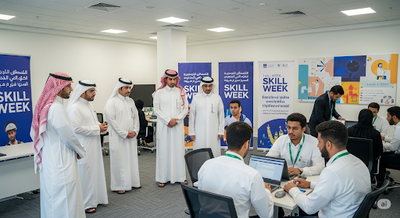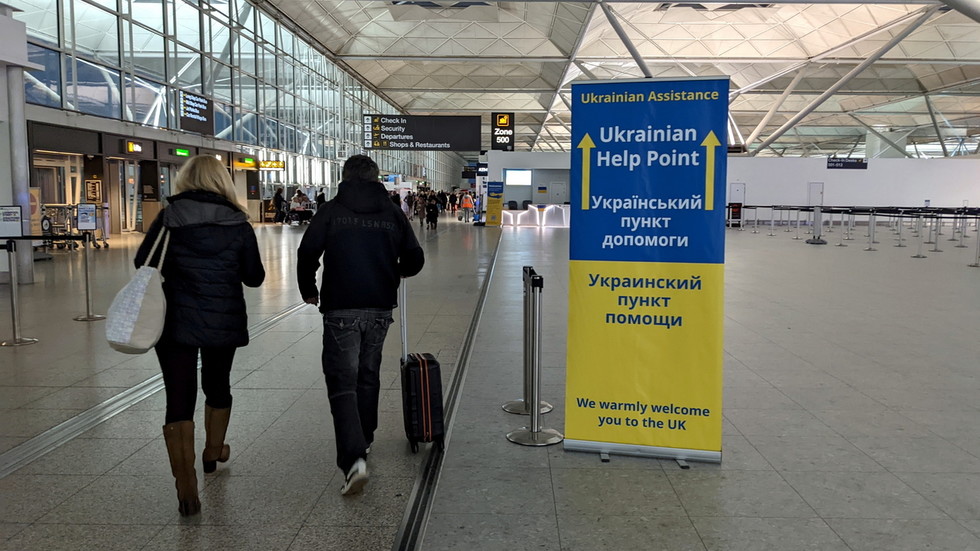
MHRSD kicked off a week-long national campaign, “Skills Week” (July 13–19, 2025)/Representative Image
TL;DR:
- Saudi Arabia launches national “Skills Week” to align youth training with labor market demands. Over 3 million training slots planned by 2028 under Phase II of Waad Initiative.
- 8,500+ skills mapped across 12 sectors via new Sector Skills Framework. World Bank-supported surveys and skill taxonomy tools aim to close workforce gaps.
- Initiative is part of broader Vision 2030 drive to boost labour productivity and reduce skills mismatch.
Saudi Arabia’s Ministry of Human Resources and Social Development (MHRSD) has kicked off a week-long national campaign “Skills Week” (July 13–19, 2025) to elevate local talent in tune with evolving job market needs.
Launched to coincide with World Youth Skills Day (July 15), the initiative emphasizes a ‘Skills First’ philosophy to reshape the Kingdom’s labour ecosystem under Vision 2030 .
National Vision & Strategic Framework
Led by the newly established Skills & Training Deputyship, Skills Week underscores collaboration between government institutions and private-sector stakeholders. Operating under the national Labour Market Strategy (approved in 2020) and the National Skills Strategy, the campaign seeks to foster a sustainable skills ecosystem embedded in lifelong learning and market alignment.
Flagship Initiatives & Milestones
Waad Training Initiative
- Phase I exceeded targets, delivering 129% of planned training via collaboration with 14 private firms.
- Phase II aims to deliver 3 million training opportunities by 2028 through partnerships with over 65 public-private entities.
Sector Skills Framework & Councils
- Introduced a Sector Skills Framework mapping over 8,500 technical skills across 12 priority sectors.
- Supported by 13 Sector Skills Councils with more than 200 industry experts, guiding curriculum and training design.
Skills Survey & Taxonomy
- Conducted a World Bank‑backed survey covering 3,000 companies nationwide to identify skills gaps and shape training strategies.
- Launched the Saudi Skills Classification Taxonomy, standardizing skill definitions across professions.
Waad Club & Volunteer Mentorship
- Introduced Waad Club, a national platform for mentoring, volunteer-led coaching, and knowledge sharing across sectors.
Official Statement
As per AlArabia, Dr. Ahmed bin Abdullah Al-Zahrani, Deputy Minister for Skills and Training, described the programme as “a key milestone in showcasing Saudi Arabia’s progress toward a fully integrated national skills ecosystem.” He affirmed the Kingdom’s intent to prepare youth capable of driving domestic transformation and competing globally in alignment with Vision 2030.
Broader Reform Agenda
- Skill Accelerator Program: Targeting the training or retraining of over 300,000 Saudis by 2027, focusing on seven high-growth sectors through more than 3,000 national training offerings with local and global partners.
- Professional Verification Program: Expanded to cover over 160 countries and 1,000+ professions, verifying qualifications of foreign talent before entry to ensure quality standards in crucial sectors such as engineering, education, and healthcare.
- Education Reform Linkage: Aligned with the Human Capability Development Program, spanning from early education to higher learning and adult education initiatives, to close gaps between academic outcomes and labor market needs.
Significant competitiveness gains have already been recorded: Saudi Arabia climbed 11 places globally in workforce training rankings (IMD), rose to 9th in labor productivity per employee, and ranked 5th in ease of finding skilled talent (INSEAD) in 2024.
Why It Matters
- Labour Productivity Boost: With productivity among the highest in G20 economies as mentioned in AlArabiya (4.9% increase in 2022), these reforms signal systemic impact.
- Reduction of Skills Mismatches: Mapping clear skill requirements across sectors helps ensure training aligns with real market demands.
- Youth Empowerment & Employment: The campaign directly supports Saudi youth by linking education, training, and career opportunities.
- Private Sector Integration: Deepening collaboration between government and industry optimises employment pipelines and workforce planning.
Expat Perspective
National reforms like Skills Week benefit not only Saudis but also expatriates and foreign investors:
- Career Alignment: Clearly defined skill frameworks mean better opportunities for professionals seeking work in Saudi mega‑projects.
- Transparent Standards: The Validation Programme and standardized taxonomy ensure credential visibility for foreign workers.
- Investment Appeal: A skilled, productive workforce enhances Saudi Arabia’s attractiveness for international collaboration under Vision 2030.
With Skills Week as a focal point, Saudi Arabia is confidently spearheading a shift toward a skills-first labor model. Anchored by data-driven policy making, sectoral collaboration, and technology-enabled standards, the Kingdom is accelerating its Vision 2030 goals, positioning Saudi youth, workers, and stakeholders for success in an increasingly competitive global economy. These coordinated reforms, from surveying workforce gaps to launching classification systems and accelerators, reflect a commitment to building a future-ready labor market. As the demand for talent grows in sectors like giga-projects, tourism, and technology, Skills Week stands as a benchmark initiative: aligning education with opportunity, and ambition with capability.

 4 hours ago
1
4 hours ago
1










 English (US) ·
English (US) ·